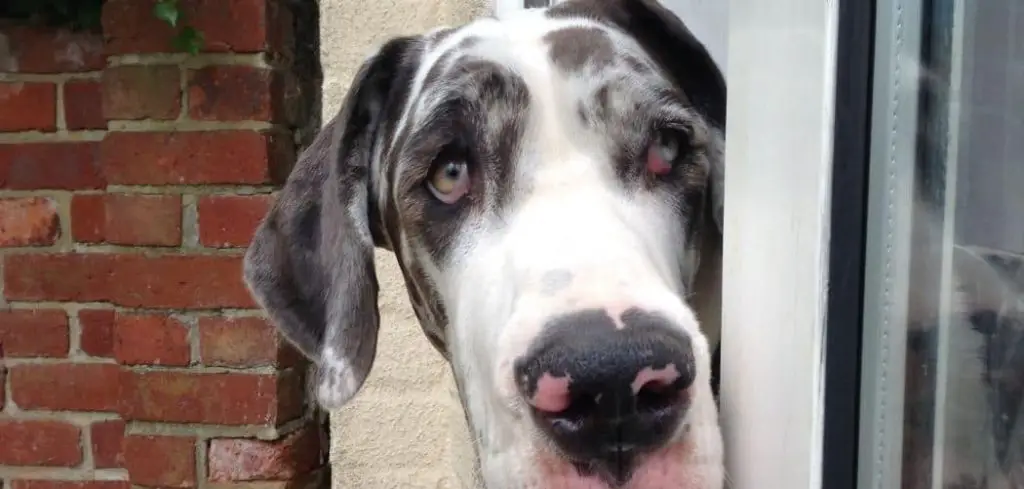When your dog has a swollen eye and suddenly stops eating, it can be alarming and distressing. These two symptoms together might indicate something more serious than a minor irritation.
We outline the common causes of dog swollen eye and not eating, what you can do at home, and when to seek veterinary help.
Dog Swollen Eye and Not Eating — Why It Happens
A dog with a swollen eye who’s also refusing food may be dealing with pain, infection, or even a systemic illness.
Common culprits include eye infections like conjunctivitis, trauma to the face or eye area, allergic reactions, and dental abscesses that affect nearby tissues. More generalized conditions like fever or systemic infections can also lead to eye swelling alongside a lack of appetite. These symptoms should not be ignored.

Common Causes of Dog Swollen Eye and Not Eating
Conjunctivitis
Also known as pink eye, conjunctivitis can cause the tissues around the eye to become inflamed and swollen.
This condition often results in discharge, redness, and noticeable discomfort, which can make your dog reluctant to eat.
If conjunctivitis is caused by bacteria, your dog may also feel under the weather, contributing to appetite loss.
Read more: Dog Conjunctivitis and Not Eating (Here’s why)
Eye Injury or Trauma
A scratch, bite, or bump near the eye can lead to swelling, pain, and bruising.
Facial trauma may cause your dog to avoid eating due to discomfort when chewing or moving the jaw.
You might notice squinting, pawing at the face, or flinching when the area is touched.
Allergic Reaction
An allergic reaction to an insect sting, food, or environmental trigger can cause sudden eye swelling.
If the reaction is severe, your dog might also experience nausea or lethargy, leading to reduced appetite.
Swelling may appear around the eyes, muzzle, or throat, and can develop rapidly.
Dental Abscess or Tooth Pain
A dental infection can sometimes spread toward the eye area, causing facial swelling.
In these cases, dogs may show pain while chewing, drool excessively, or stop eating entirely.
The swelling may appear to be from the eye but actually originates deeper in the cheek or jaw.
Orbital Cellulitis
This is an infection of the tissues behind the eye, often from trauma or spread from nearby structures like the mouth.
It can cause intense eye swelling, eye protrusion, and fever.
A dog with orbital cellulitis will usually have a poor appetite and show signs of discomfort or lethargy.
Glaucoma
Glaucoma increases pressure within the eye and can lead to swelling, pain, and even vision loss.
The affected eye may look enlarged, cloudy, or very red.
The discomfort and nausea associated with this condition can lead your dog to stop eating.
What to Do If Your Dog Has a Swollen Eye and Is Not Eating
If your dog’s eye appears swollen and they’re not eating, start by checking for any visible injuries or signs of discharge.
Keep the eye clean by gently wiping away any crust or debris with a soft, damp cloth.
Prevent your dog from rubbing or scratching the eye, as this can make things worse. Use an e-collar if needed.
Offer bland, soft food like boiled chicken or rice to encourage eating — but don’t force it.
Keep your dog calm and indoors until you can determine the cause or see a vet.
When to Call or Visit Your Vet
Any swelling around the eye that doesn’t improve within 12–24 hours should be evaluated.
Seek urgent care if you notice the following:
Eye is bulging, cloudy, or red
Swelling is spreading across the face or both eyes
Your dog appears to be in pain, yelping, or whimpering
Loss of vision or difficulty keeping the eye open
Complete loss of appetite for more than 24 hours
These symptoms may point to infections, trauma, or even neurological problems requiring immediate treatment.
Read more: Dog Gunky Eye and Not Eating (What it could mean and when to worry)
Key Takeaway
If your dog has a swollen eye and isn’t eating, it’s a sign something more than mild irritation may be going on.
Eye swelling can be painful and tied to infections, trauma, or systemic illness — all of which can impact your dog’s appetite.
Don’t wait too long. Gentle care at home is a start, but persistent or severe symptoms deserve prompt veterinary attention to preserve your dog’s comfort and health.
